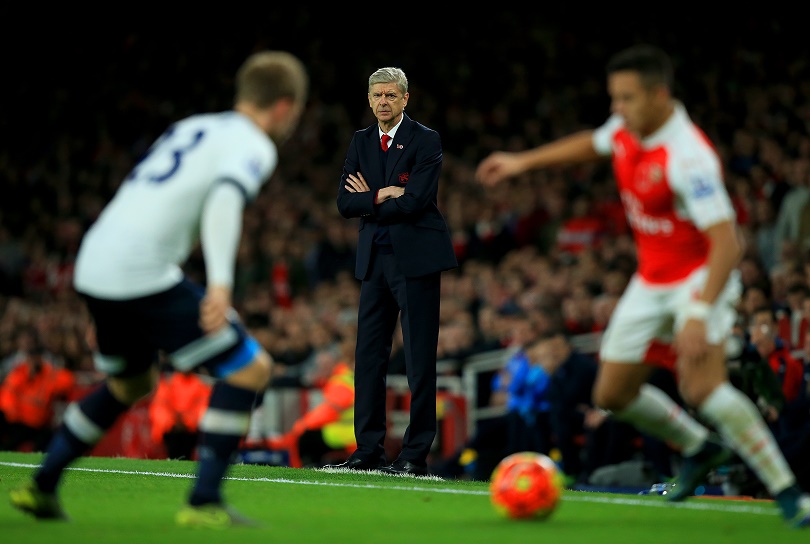Finishing below Tottenham is the best thing that could happen to Arsenal
St Totteringham's day may not come to pass this year, with Spurs six points ahead of their north London rivals. And y'know what? Gooner Chas Newkey-Burden thinks it'll be a good thing...
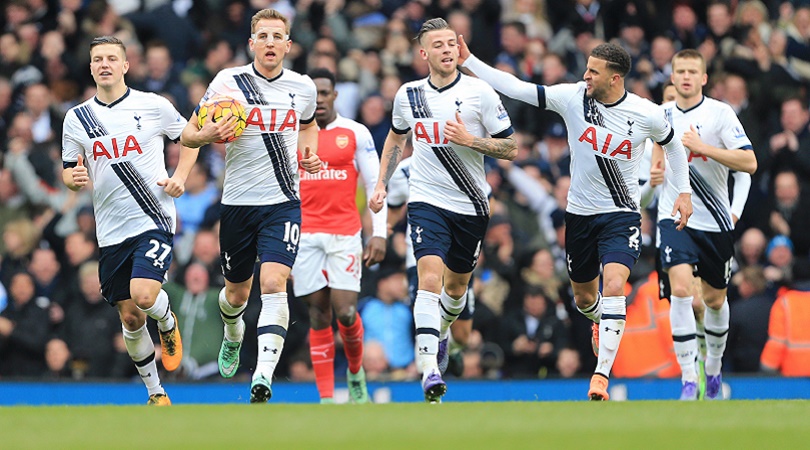
It’s a tradition that’s supposed to mock Spurs supporters, but I sometimes wonder if the joke is actually on us Arsenal fans.
The longer we’ve celebrated it, the more I’ve found St Totteringham’s Day – the celebration held each season on the day it becomes impossible for Tottenham to finish above Arsenal in the league – an embarrassment. It’s an embodiment of the defeatism and lack of ambition of the Emirates era, and degrades Arsenal every bit as much as it humiliates Spurs.
Between 1998 and 2004, the Gunners won two doubles and enjoyed that historic unbeaten season, all while playing football to drool over. These were glorious, momentous victories to be wallowed in.
It’s easy to forget, too, that Arsenal made a pair of convincing stabs at the Champions League in the immediate wake of that period, reaching the final in 2006 and the last four three years later. It seemed the club and its fans were leaving neighbours Spurs in their wake.
From global to local
Each Spring, just as pressure could be building on the board and Wenger to prepare for a busy summer, fans instead started cheering this hollow local victory
Yet as Arsenal began to consistently fail to challenge for the league title or European honours, many of my fellow Gooners began to console themselves with the parochial and petty honour of finishing above their local rivals.
Each spring, just as pressure could be building on the board and Wenger preparing for a busy summer, fans instead started cheering this hollow local victory. "It’s not so bad," they’d shrug as another disappointing season neared its end, "at least we finished above that lot – mind the gap!"
Get FourFourTwo Newsletter
The best features, fun and footballing quizzes, straight to your inbox every week.
Political regimes could only dream of such a clockwork sop with which to placate their population.
mind the gap between Arsenal and Tottenham September 27, 2014
There’s nothing more useful than a rallying distraction when you want the punters you’ve let down to keep kneeling at your altar, and how Gooners were placated as St Totteringham’s Day came round each year.
Yet if I were a Spurs supporter I’d find the whole spectacle rather amusing. Around the turn of the century, Arsenal fans were puffing out their chests and telling our neighbours that we’d outclassed them forever. From now on, we told them, White Hart Lane was a routine date, because now we were all about Old Trafford and the Bernabeu.
End of the run?
Spurs, in contrast, are united and electrified, clearly chomping at the bit to get out on the pitch each week and grab another three points in front of their admiring fans who share the belief the manager has instilled in the team
How confident we pretended to be, yet the moment our new status went awry, we sank pathetically into the comforting bosom that is the annual rendition of that inane chant: “It’s happened again, it’s happened again, Tottenham Hotspur, it’s happened again.”
Well, after 20 years of it happening again, this year it might not. At the time of writing, the Gunners trail their local rivals by six points. Although Wenger’s men have a game in hand, the relative confidence of the two squads points to only one outcome.
Occasional brilliance aside, Arsenal are a nervous crew led by a besieged manager and watched over by a livid, unforgiving fanbase. Spurs, in contrast, are united and electrified, clearly champing at the bit to get out on the pitch each week and grab another three points in front of their admiring fans who share the belief the manager has instilled in the team.
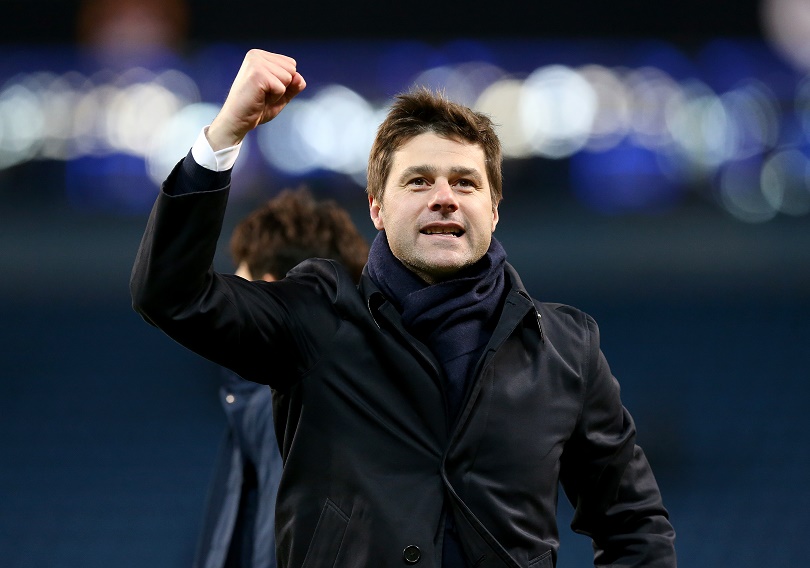
Spurs may not turn out to be champions of England come May, but they seem set to be crowned champions of north London. Yet before the Arsenal fanbase descends into yet another of our notorious Twitter meltdowns, it’s worth considering what a useful thing such a humbling state of affairs could prove to be.
Catalyst for change
The emotional instinct of every Gunners fan is that Spurs finishing above us would be disastrous, but perhaps it’s the sort of tremor needed for a big sweep through the club in the months ahead
Last time Arsenal finished below Spurs in 1995, a ground-breaking summer followed. The Gunners ended that season in 12th place – way behind Spurs in 7th. Even the most happy-clappy of optimists would have struggled to find a positive as the curtain first went down.
Yet the misery caused a mighty, revolutionary broom to be swept through Highbury. Within months, Dennis Bergkamp and David Platt had arrived. The sophistication these signings brought to a previously cloddish squad paved the way for the Wenger revolution a year later.
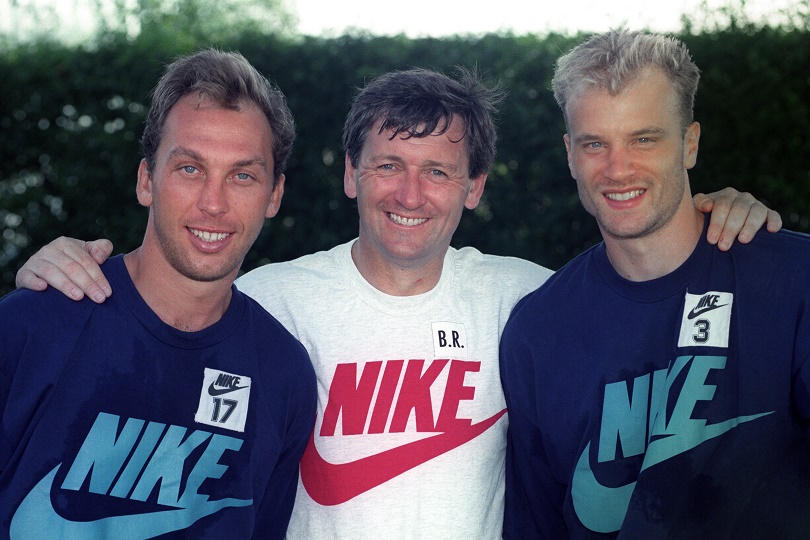
Arsenal have always been a conservative club. Generally, a crisis is needed before any sort of shake-up is considered. The emotional instinct of every Gunners fan is that Spurs finishing above us would be disastrous, but perhaps it’s the sort of tremor needed for a big sweep through the club in the months ahead.
What needs to change is the subject of debate – frequently vitriolic – among Arsenal fans, an increasing number of whom want Wenger to be replaced. Yet even those who, on balance, prefer Wenger to stay – of which I am one – can see that an overhaul of sorts is necessary.
Recruitment improvement
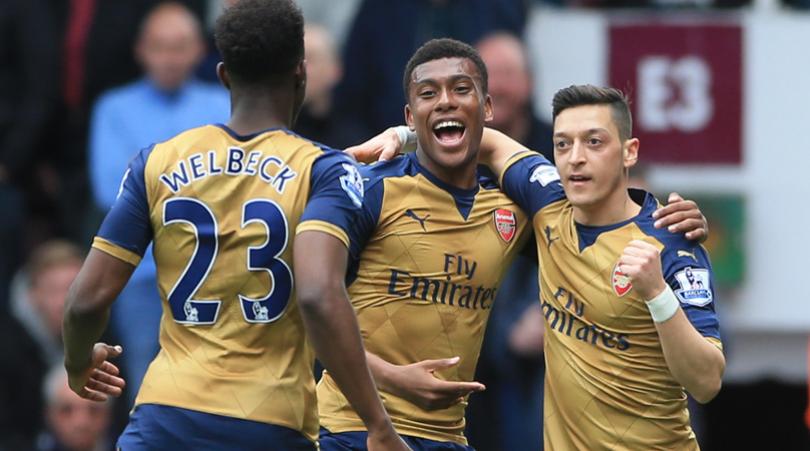
Michael Cox: Alex Iwobi shining a light during dim days at Arsenal
Rodrigo Bentancur: The Arsenal-scouted Boca teen who almost joined Real Madrid in January?
Not least in the transfer market. In each of the last three summers, Le Boss has splashed out for a world-class player: first Mesut Ozil, then Alexis Sanchez, most recently Petr Cech. Yet the need for a quality new centre-back, defensive midfielder and centre-forward has not gone away.
Perhaps it will take the horror of finishing behind Spurs to push Wenger into a proper summer spree. When Manchester United finished 7th in 2013/14, the experience proved such a wake-up call that the board spent £169 million on new recruits, bringing to an end a period of comparative austerity.
The endlessly repeated narrative that the Gunners are stuck in a groundhog day of identikit campaigns is flawed. No player boasting the quality of Ozil, Alexis or Cech was bought between 2006 and 2013, and in none of those years did the Gunners make three victorious visits to Wembley, as Wenger’s men did in 2014 and 2015.
But this summer’s improvements must feel incredible, not incremental. New money is being pumped into the top flight. The likes of Leicester, Spurs and West Ham will continue to buzz next year, while both Pep Guardiola and Jurgen Klopp will patrol our touchlines.
Radical transformation is needed, and for fans of England’s most cautious club, short-term pain may be the best chance of achieving it.
